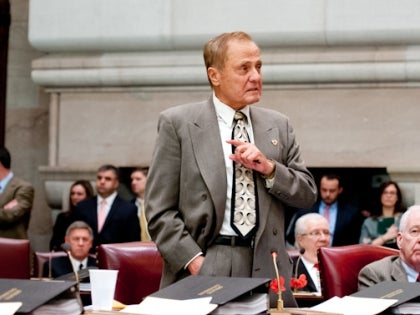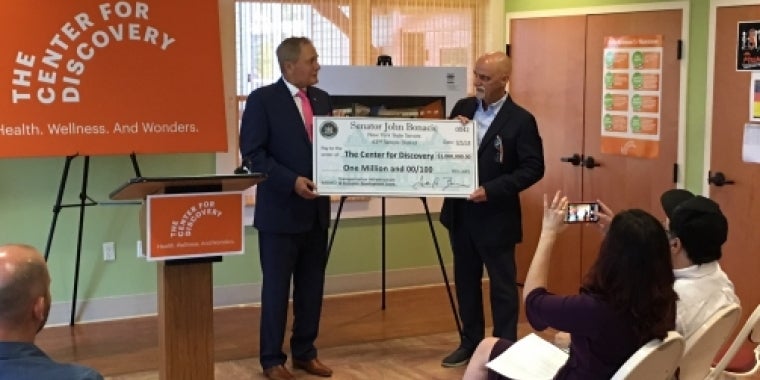
Senator Bonacic, Assemblyman Crouch Provide Watershed Update

State Senator John J. Bonacic (R/I/C - Mt. Hope) and Assemblyman Clifford Crouch (R - Guilford) today jointly updated members of the Delaware County Board of Supervisors on progress they have made with the City of New York on watershed related matters.
Senator Bonacic said, "For the first 15 years that I have represented a portion of the watershed, first in the Assembly and now the Senate, I felt that talking to the DEP was like talking to a wall. This year, however, things have changed. We have a long way to go, but we have finally made some progress and appear to be on our way to making even more."
Bonacic and Crouch have faced off legislatively with New York City Mayor Michael Bloomberg over recreational land use in the watershed and the management of the City's reservoir system. Bloomberg has filed Statements with the Senate trying to stop various Bonacic bills relating to recreational land use and flooding. Each time Bloomberg has tried to stop legislation from passing, however, the Senate has voted for the Bonacic legislation.
Assemblyman Clifford Crouch said "It is good to see we have made progress after we have worked so hard to hold the City accountable. The changes made this past year have been positive but we must work to make sure the changes are permanent."
In the past eighteen months, the Senate has rebuffed the City's management of the land it owns in the watershed and the management by the City of its own reservoir system. The watershed agreement requires that City owned lands be opened up for historic recreational uses.
The City had been failing to do that and the Senate passed legislation requiring them to speed up the process and make the lands open to the same recreational uses allowed by the State (except for those lands which if opened up would pose a homeland security risk).
The Senate also passed legislation, with surprisingly strong support from City based lawmakers, to take away the City's ability to manage its own reservoir levels. The Senate legislation instead put that authority in the hands of the DEP. Within weeks thereafter, the City agreed to install flood control measures in the Schoharie Reservoir system, opened a flood plain off the Ashokan Reservoir - meaning vacant land, rather than homes will be flooded, and has now agreed through the Delaware River Basin Commission to undertake more water releases in an effort to avoid flooding. The DEP has also started rain and snow pack releases at some of its reservoirs - which requires a draw down of the reservoir in anticipation of incoming rain and melting snow.
Bonacic and Crouch indicated that this is the first substantive progress the two of them had seen with the DEP. "We appreciate that DEP Commissioner Lloyd, unlike any of her predecessors we have dealt with, picks up the phone and tries to keep her word. Top staff have been replaced at the DEP and we are seeing a new attitude," Bonacic and Crouch said.
Bonacic said, however, that progress doesn't mean its time to quit. "Each time rain is forecasted, my offices still receive many calls from residents who live near streams and the reservoirs. Clearly the DEP has made and kept promises this year, but only time will tell if this year's good will continues after the FAD is decided by the EPA." The FAD is the Filtration Avoidance Determination the Federal Government issues to allow the DEP to continue to operate the watershed without filtering. The FAD is renewed, typically every five years. "Five years ago when the FAD was last being considered, the DEP made rumblings about cooperation but then failed to follow through. This year they have actually shown cooperation and we will make sure they continue to follow through," Assemblyman Crouch said.
Bonacic also applauded the role of Congressman John Sweeney for his efforts to address flood control. "Congressman Sweeney sits on the House Appropriations Committee. That is a Committee the City of New York needs for literally billions of reasons each year. Just as I am Chairman of the Senate Housing Committee - and therefore have significant authority over the City's ability to deal with issues it wants like rent control and community development, the Congressman has control over key financial issues which matter to the City. I know he has used that position, sometimes as a carrot and sometimes as a stick, to encourage the City to do the right thing on watershed issues."


